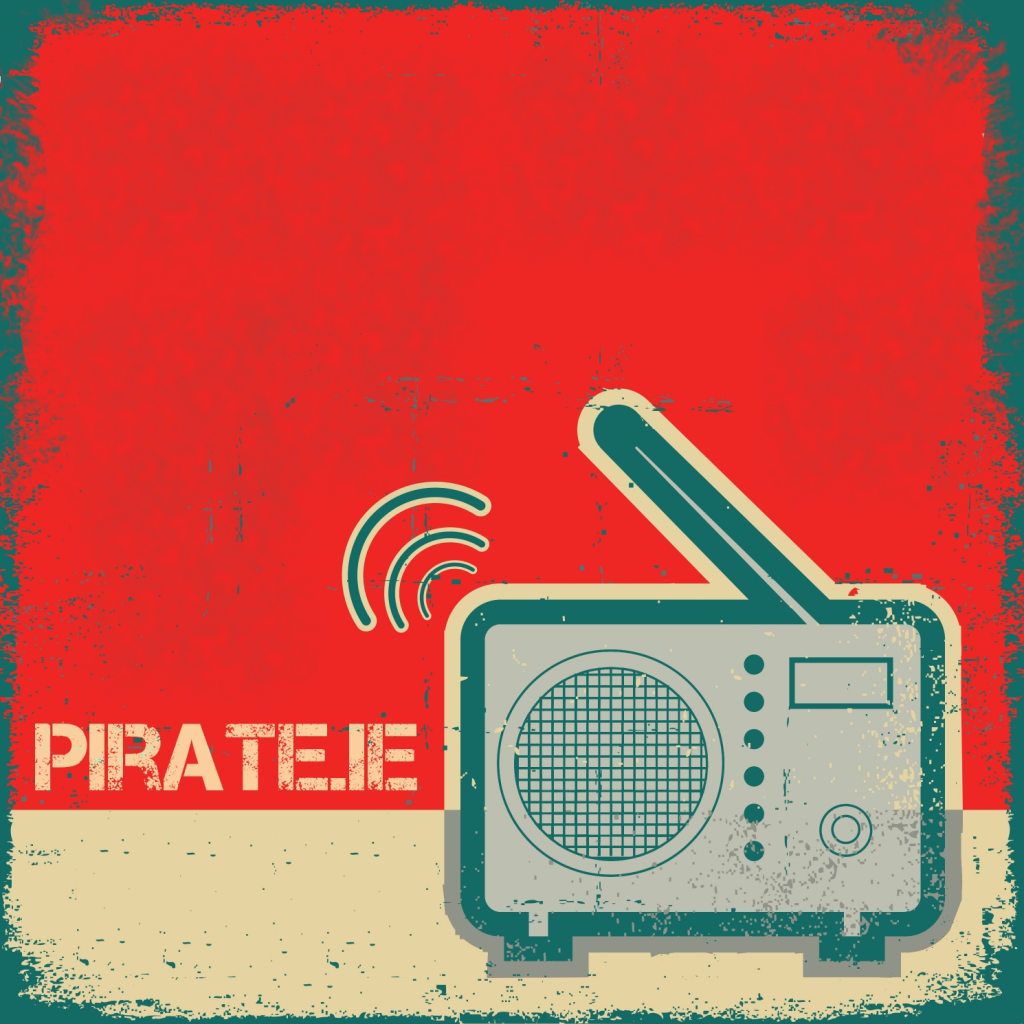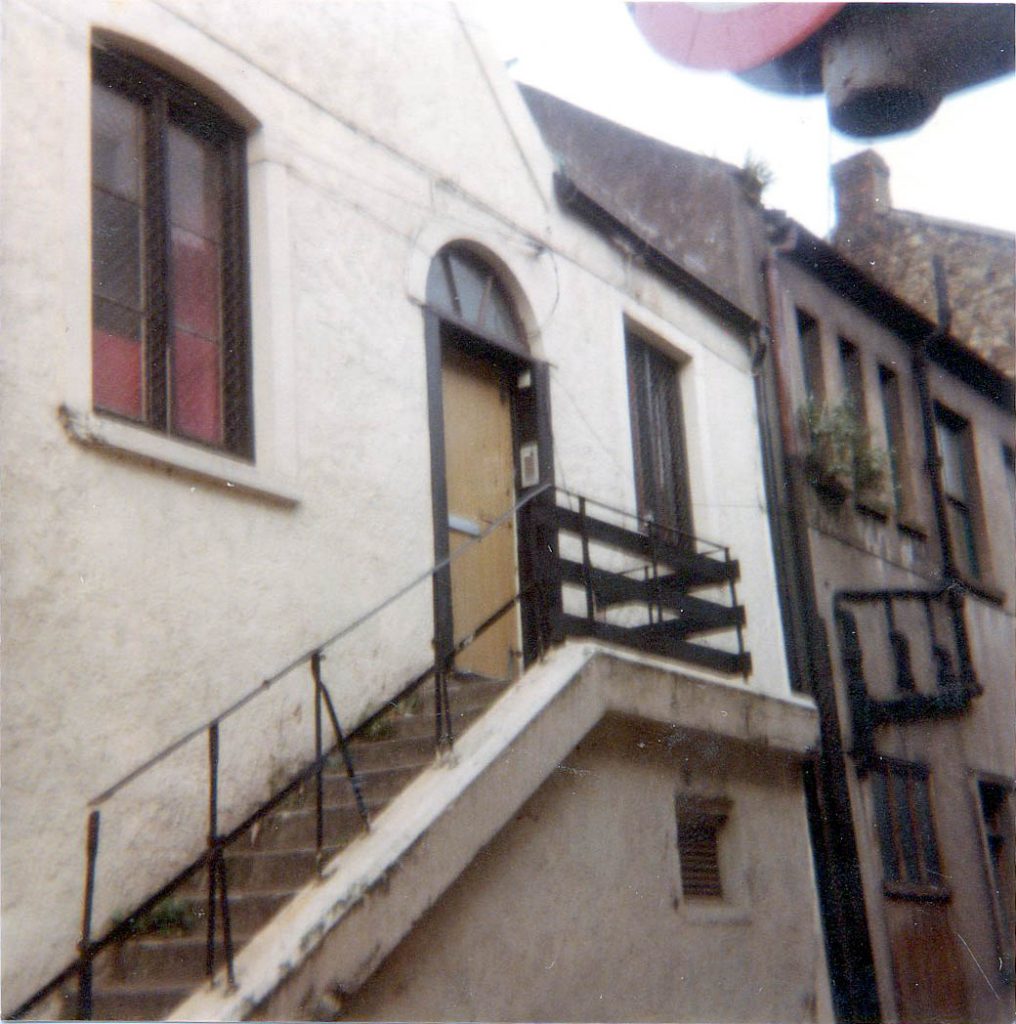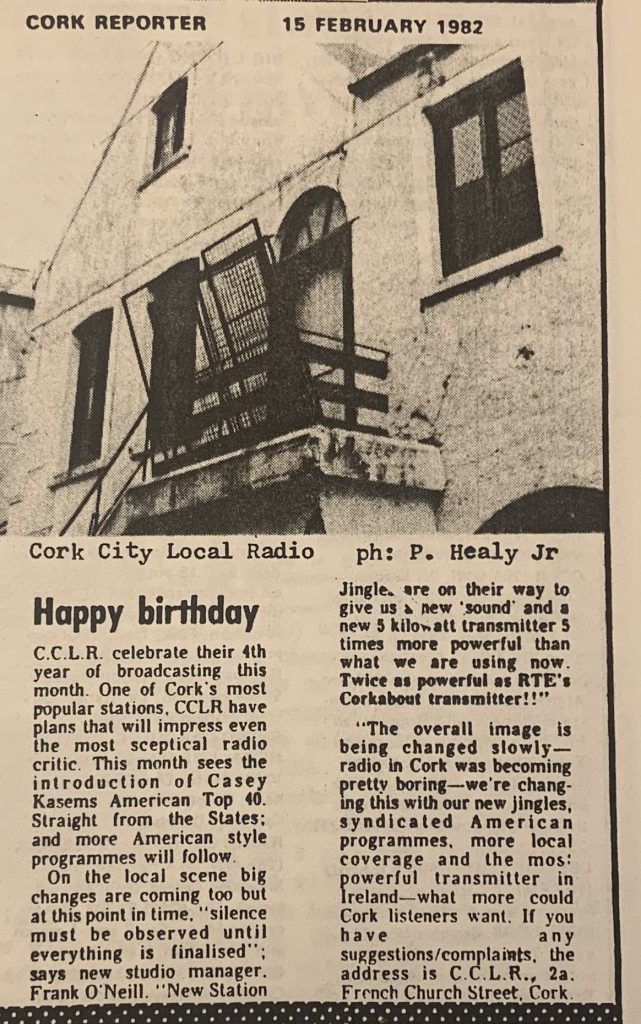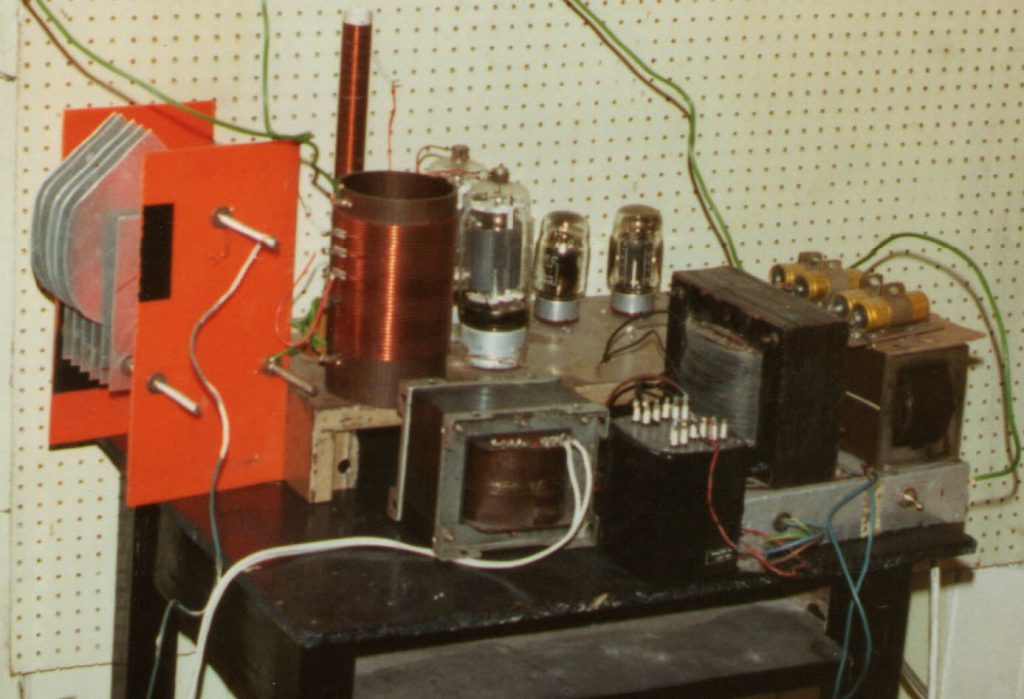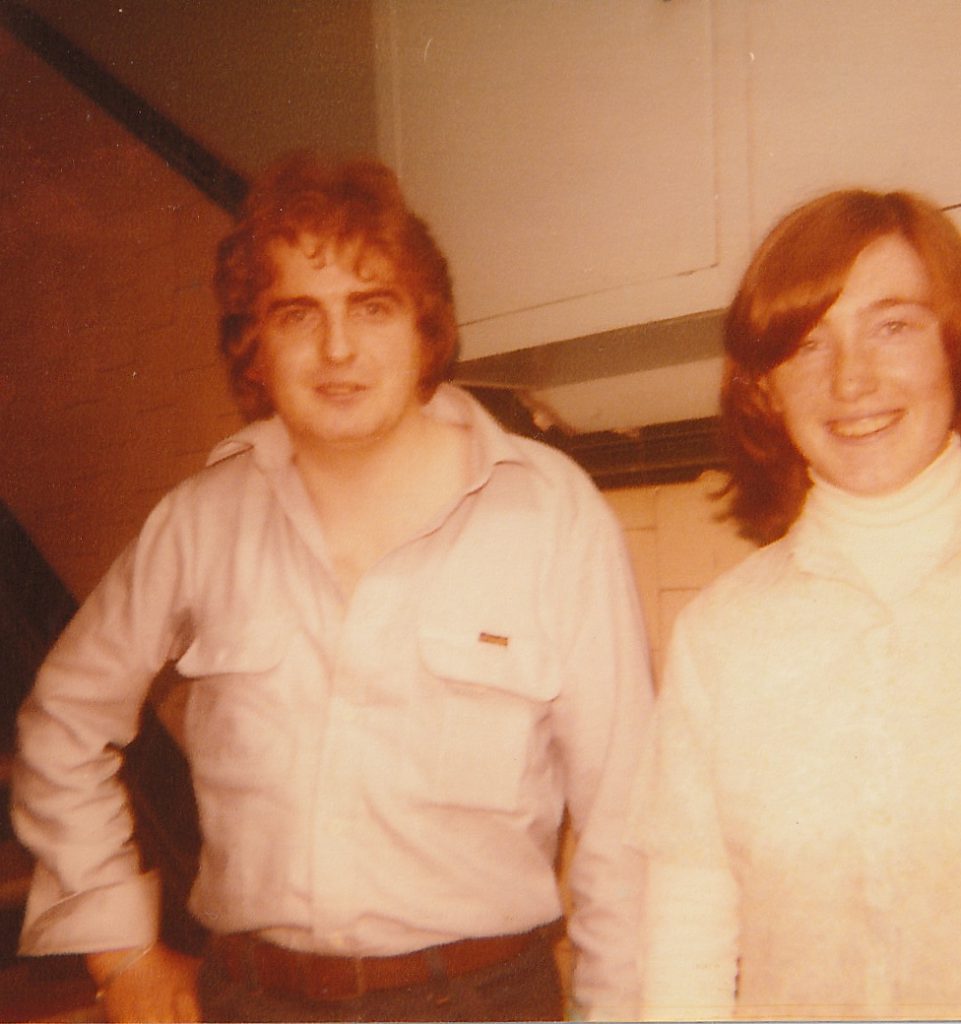Podcast: Play in new window | Download
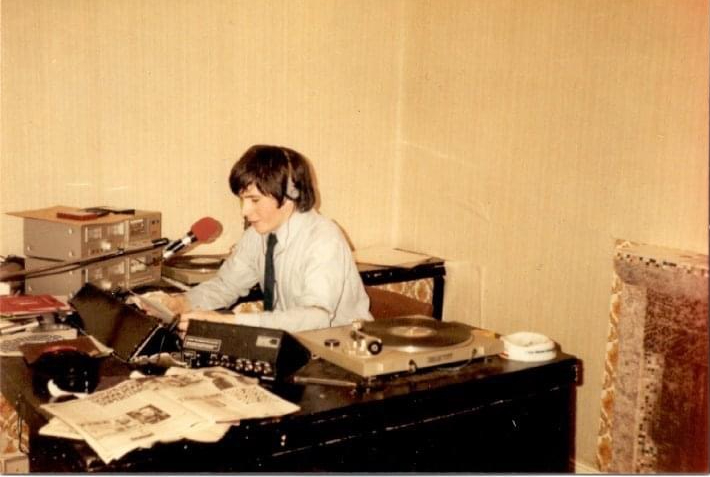
Cork’s Capital Radio began broadcasting in February 1979. The station was a breakaway from ABC which was starting to fragment and eventually closed. According to the Capital Radio magazine issued at Christmas 1980, Peter James, Dave Stewart, Con McParland and Pat Anderson decided that Cork needed a local station that would inform people about what was happening in the city. Con had operated his own small stations in Cork in the early 1970s and had previously been engineer for CBC, Cork’s first full-time pirate station.
The original plan was to locate Capital in Oliver Plunkett Street, but a change of plan meant that the studio was built over a chip shop next to the city library. The aerial was a long wire suspended between two poles around 50 feet apart on the roof of the building. The frequency initially used was around 1323 kHz, announced as 233 metres. Capital broadcast daily from 0800-2000 with a variety of music, although at one point it changed to a strict Top 40 format which caused some dissent amongst the station staff, so the format reverted to the original.
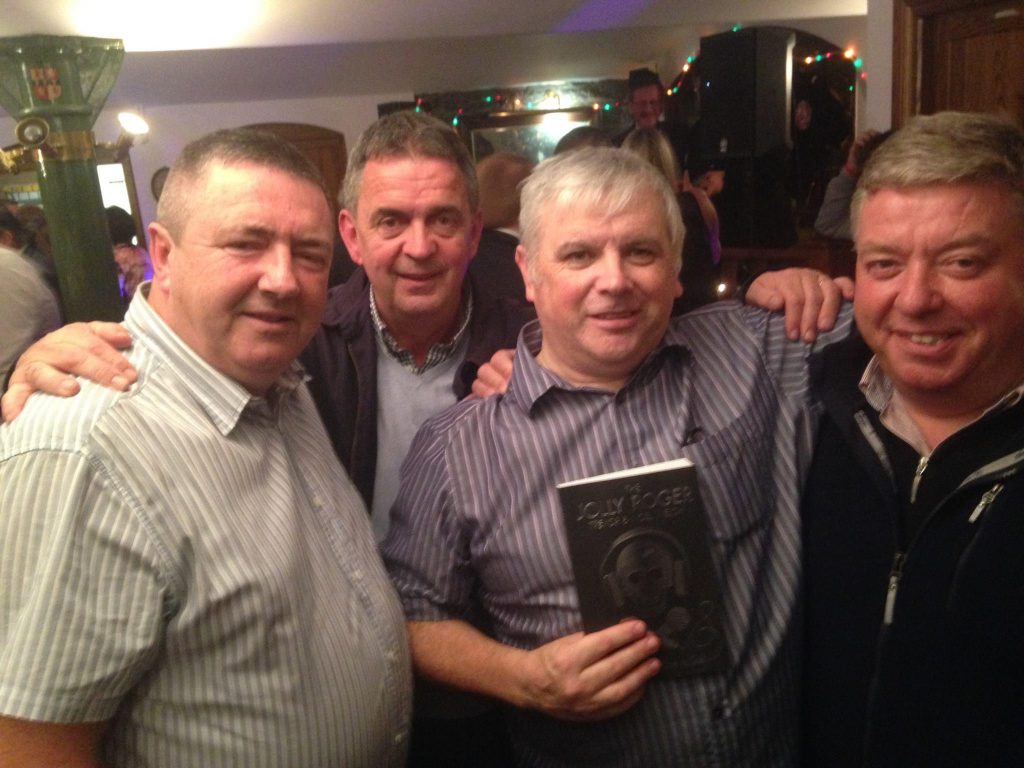
A team from Free Radio Campaign Ireland visited Capital on 2nd September 1979 and reported that the station was now broadcasting from Tuckey Street in the city centre, above a shop. The studio and transmitter were located on the top floor of the building. The equipment consisted of a pair of disco decks and a transmitter using 813 valves and a power output of about 75 watts. The aerial was a long wire supported by two five foot poles. The sound quality was reported as ‘a little below average, but not bad by any standard’. By this time Capital was on the air from 0800-0200 and non-stop at weekends.
The frequency used varied, for example in August 1979 they were noted as 1312 kHz, in June 1980 on 1336 kHz and in December 1980 on 1308 kHz. When DX Archive visited in August 1981, Capital were on 1305 kHz and in January 1982 they were heard in Scotland during the early hours on 1314 kHz.
Ian Biggar remembers: ‘I visited Cork in March 1982 and Capital Radio was still on the air, but there had been a split which resulted in Leeside Community Radio starting transmissions on 102.3 MHz. Pat Anderson, ex-Capital was the driving force behind that. When I arrived in Cork to work on ERI in July 1982, Capital Radio was still on, but nearing its end. As far as I know, it along with Radio City, it had gone by the end of the summer’.
We bring you two short recordings of Capital, both featuring evening request shows. The first recording above is an undated clip from 1980 featured some of the Teatime Express with Tony Clarke (Tony Whitnell). The clip below is of Seán Murphy and is undated but probably also from 1980.
Thanks to Ian Biggar and Pat Galvin (Pat Anderson) for background and to Pat for the recordings.

